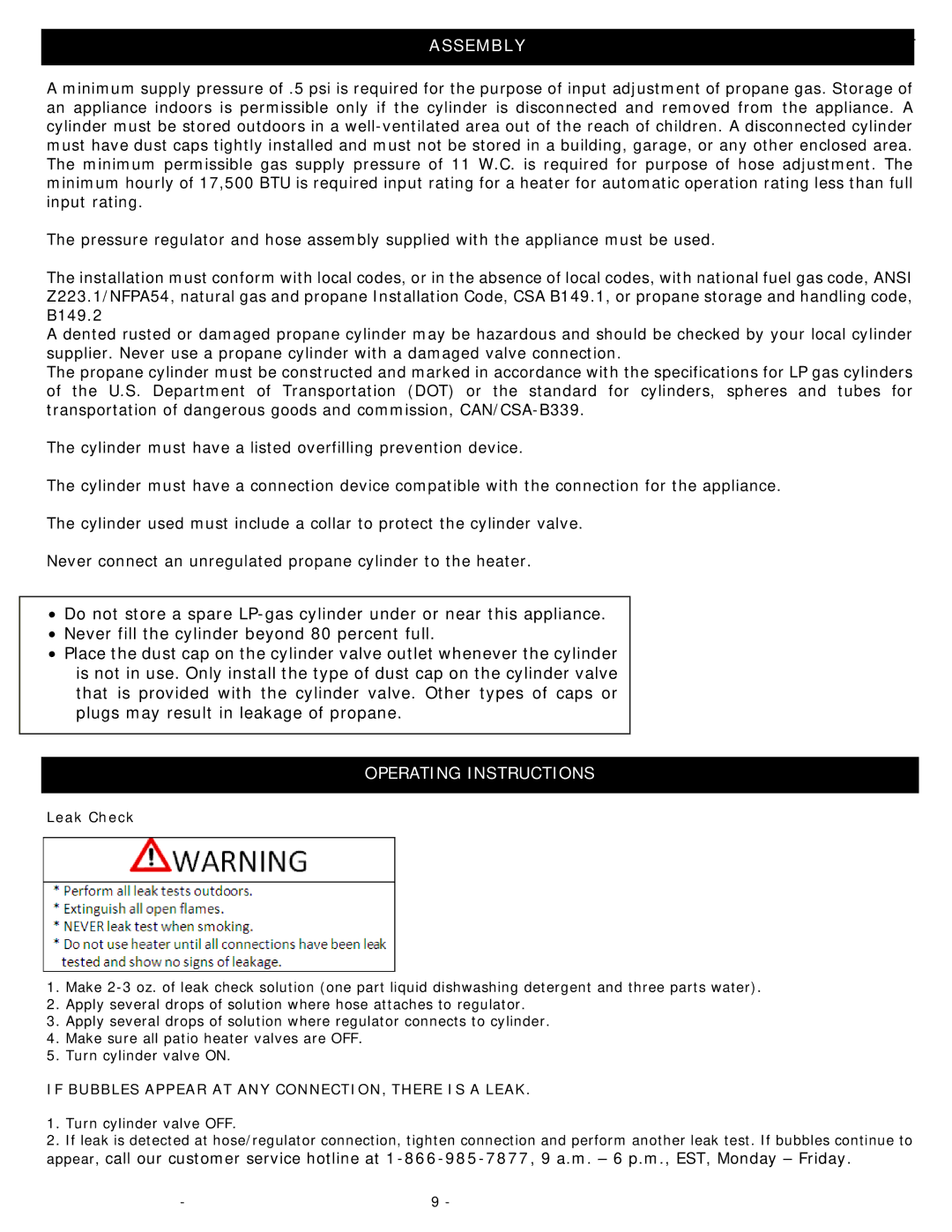
ASSEMBLY
A minimum supply pressure of .5 psi is required for the purpose of input adjustment of propane gas. Storage of an appliance indoors is permissible only if the cylinder is disconnected and removed from the appliance. A cylinder must be stored outdoors in a
The pressure regulator and hose assembly supplied with the appliance must be used.
The installation must conform with local codes, or in the absence of local codes, with national fuel gas code, ANSI Z223.1/NFPA54, natural gas and propane Installation Code, CSA B149.1, or propane storage and handling code, B149.2
A dented rusted or damaged propane cylinder may be hazardous and should be checked by your local cylinder supplier. Never use a propane cylinder with a damaged valve connection.
The propane cylinder must be constructed and marked in accordance with the specifications for LP gas cylinders of the U.S. Department of Transportation (DOT) or the standard for cylinders, spheres and tubes for transportation of dangerous goods and commission,
The cylinder must have a listed overfilling prevention device.
The cylinder must have a connection device compatible with the connection for the appliance.
The cylinder used must include a collar to protect the cylinder valve.
Never connect an unregulated propane cylinder to the heater.
•Do not store a spare
•Never fill the cylinder beyond 80 percent full.
•Place the dust cap on the cylinder valve outlet whenever the cylinder is not in use. Only install the type of dust cap on the cylinder valve that is provided with the cylinder valve. Other types of caps or plugs may result in leakage of propane.
OPERATING INSTRUCTIONS
Leak Check
1.Make
2.Apply several drops of solution where hose attaches to regulator.
3.Apply several drops of solution where regulator connects to cylinder.
4.Make sure all patio heater valves are OFF.
5.Turn cylinder valve ON.
IF BUBBLES APPEAR AT ANY CONNECTION, THERE IS A LEAK.
1.Turn cylinder valve OFF.
2.If leak is detected at hose/regulator connection, tighten connection and perform another leak test. If bubbles continue to appear, call our customer service hotline at
-9 -
